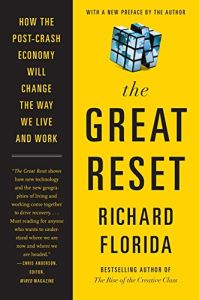Join getAbstract to access the summary!

Join getAbstract to access the summary!
Richard Florida
The Great Reset
How the Post-Crash Economy Will Change the Way We Live and Work
Harper, 2010
What's inside?
The current economic doldrums are likely a “Great Economic Reset,” and more productive than you think.
Recommendation
Urban studies scholar Richard Florida first popularized the idea of the creative class. Now he argues that saving the last shreds of the factory-driven industrial system makes no sense. A massive overhaul is underway, and knowledge workers are its new vanguard. Florida makes his points in short, punchy chapters, but steps away from stating the obvious. getAbstract recommends this book to economists, politicians, urban planners and anyone wanting a sense of the likely future.
Summary
About the Author
Richard Florida also wrote The Rise of the Creative Class and Who’s Your City?




















Comment on this summary